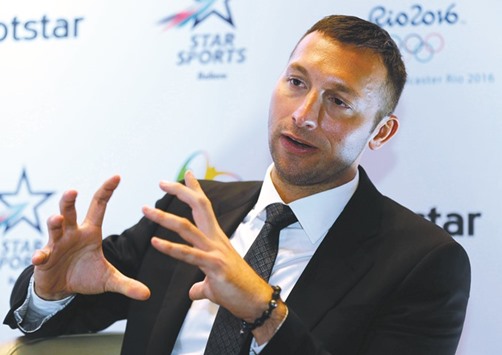Although Olympic champions can make great role models, sports officials can’t expect all athletes to be angels in their pursuit of results, according to Australian swimming great Ian Thorpe.
The Australian Olympic Committee (AOC) has taken a hard line on team culture at the Rio de Janeiro Olympics, four years after their London Games delegation was embarrassed by a number of unsavoury incidents involving misbehaving athletes.
Several athletes have been put on watch-list ahead of the Games, while the country’s top tennis player Nick Kyrgios withdrew himself from consideration after a row with the AOC over his behaviour in the public arena.
Thorpe was a paragon of sportsmanship during a glittering swimming in which he won five Olympic golds and 11 world titles but said it was tough to expect all athletes to match sporting excellence with impeccable conduct.
“I prefer them to be good leaders but it’s not a requirement,” Thorpe said in an interview. “We want them to be good role models, we want everyone to be perfect.
“But what happens if the athlete isn’t perfect but they get the results? Which one’s more important? This is really difficult and it’s a difficult position for sports to be in.”
Australia’s Rio Chef de Mission Kitty Chiller has spear-headed the AOC’s culture imperative and publicly lashed Kyrgios and his David Cup teammate Bernard Tomic for poor conduct.
Although only 21, Kyrgios has a long rap-sheet of abusing opponents, umpires and fans, and was given a suspended ban by the men’s tennis circuit for making a lewd comment at twice grand slam champion Stan Wawrinka during a match last year.
Tomic opted out of Rio, citing a “busy” playing schedule, after he was castigated by Chiller and Tennis Australia for failing to offer a shot on match point in defeat to Italian Fabio Fognini at the Madrid Open last month.
Tough approach
The AOC’s tough approach to discipline has drawn both praise and condemnation in Australia, where some pundits have lamented the loss of a possible medal chance with the withdrawal of world number 18 Kyrgios.
The player has defended his histrionics as competitive intensity and Thorpe said it was hard for some athletes to rein in their personalities lest it affect their performance. “I think there is a possibility to be both — to be the champion and be the good role model,” added Thorpe, who will be a panellist for broadcaster Star Sports during the 2016 Games.
“But if there is a different way of going out there to get your performance where you have to behave in a particular way to motivate yourself, and that’s what’s worked for you, do you compromise that and go down the chart? It’s difficult.”
Thorpe was dismayed by Australia’s swimming performance in London, where they won only a single title and had their worst haul in the pool in 20 years.
A post-Games review found a “toxic culture” had been allowed to develop in the team and reported allegations of bullying and drunkenness among other problems.
Australian swimming has since had a major governance overhaul and top officials say the culture has been fixed in time for a better showing at Rio.
“What was disappointing for a lot of us was that the (London) team didn’t represent the values that we have as well,” Thorpe said.
“I feel we have a short time in the sport and because of the people that have come before you, you respect that history and you look after it so that you re-inspire younger people so that the legacy is able to continue for years to come.”

Australian swimmer Ian Thorpe speaks during an interview in Mumbai, India.
